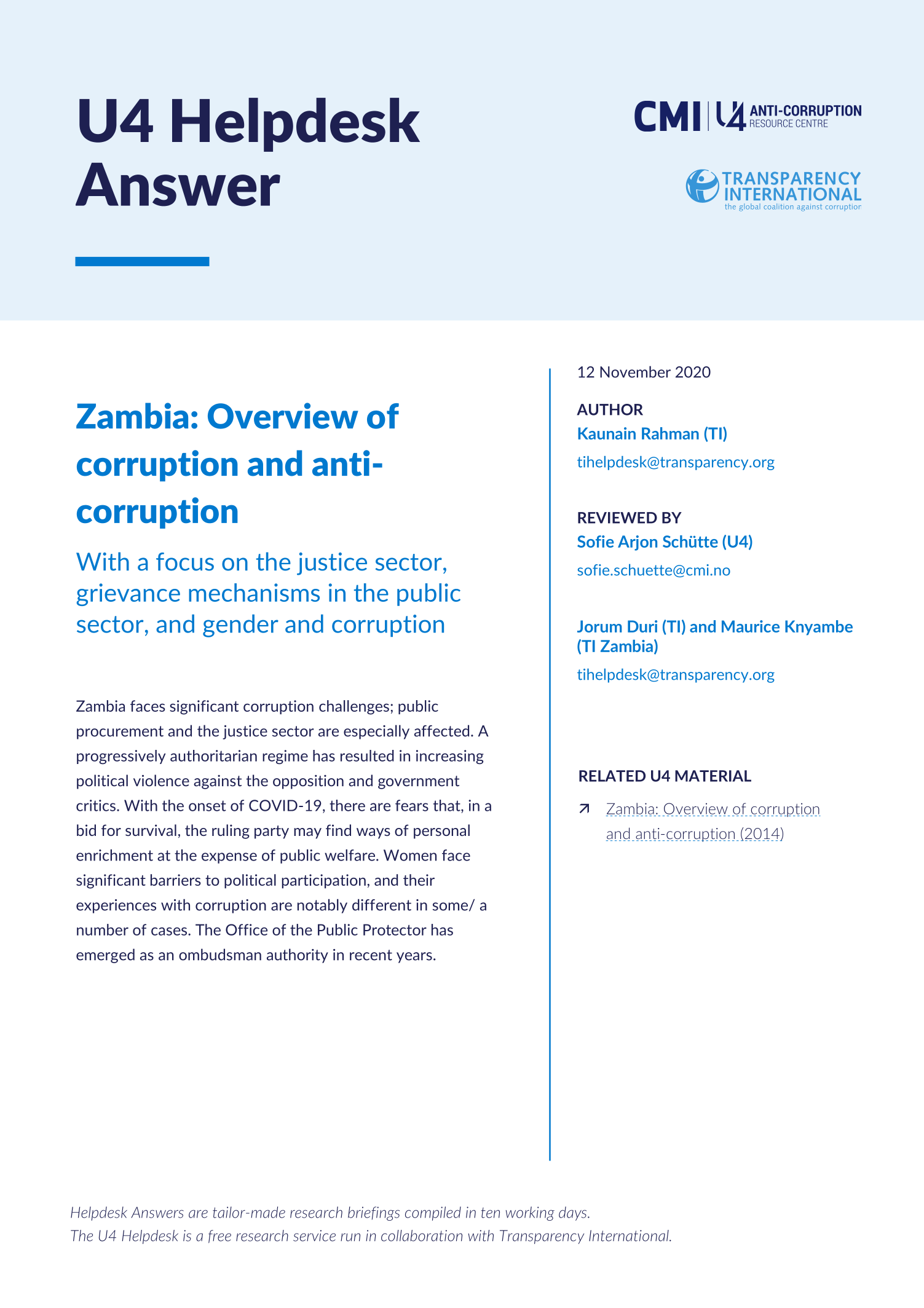Main points
- Corruption remains a problem in the Zambian context, with government officials frequently engaging in corrupt acts with impunity.
- Political corruption and undue influence stand out as major forms of corruption.
- The judiciary is influenced by the executive, and its reputation is marred by allegations of corruption.
- Applying a gender dimension to experiences of bribery show that, while women are less frequently asked than men to pay bribes, they are more likely to raise their voices against it. Women are also more affected than men when it comes to the growing phenomenon of "sextortion" where sex is used as an informal currency in exchange for favours and economic opportunities.
- The Office of the Public Protector acts as a centralised grievance mechanism for all citizens.

